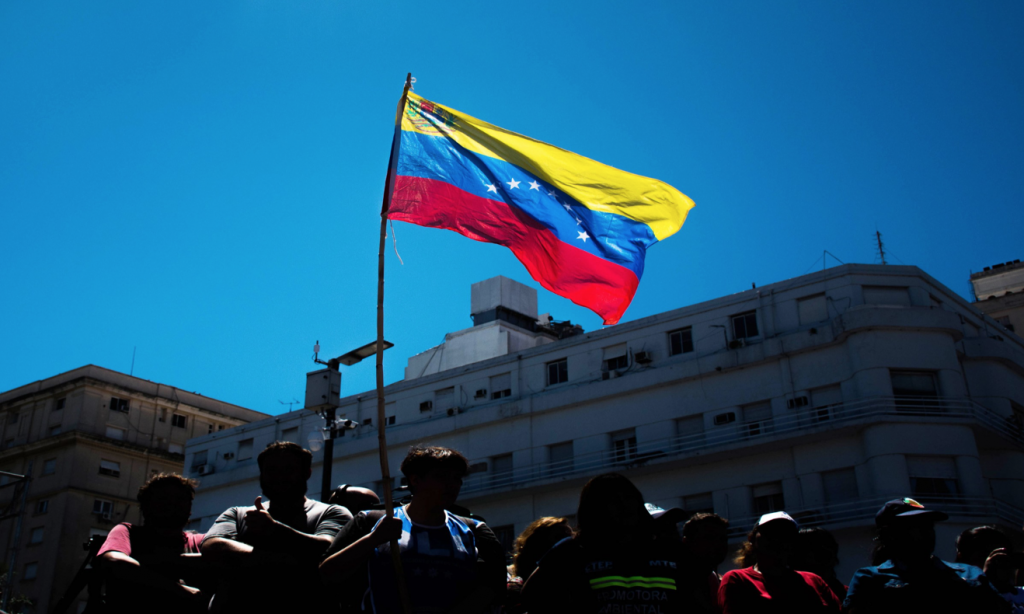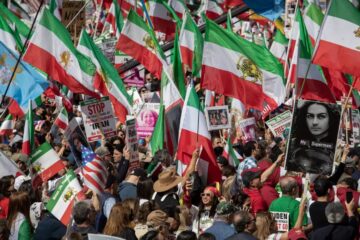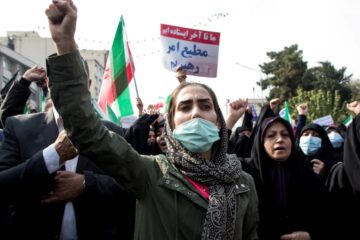
A Nation in Need of Humanitarian Justice
The United Socialist Party of Venezuela, now led by Nicolas Maduro, Hugo Chávez’s successor, has been criticized of democratic repression, electoral manipulation and censorship over the last few years. The dismissal of the Attorney General under abnormal circumstances and the development of the National Constituent Assembly without formal opposition have suggested a disregard of proper democratic processes arbitrarily increasing government control over legislative, executive and judicial branches.
This gradual accumulation of power has gained the Maduro government the ability to intervene in the justice system and in the prosecution of their opposition. There have been multiple reports of arbitrary arrests, impunity, excessive uses of force, torture, ill-treatment, and disappearances. Mismanagement by the current government has also contributed to mounting economic and social crises, culminating in dangerous shortages of food, medicine and electricity. A study conducted by The Documentation and Analysis Centre for Workers in 2018 revealed that according to the consumer price index, the basket-price of consumer goods relative to a family of five was sixty times higher than the Venezuelan minimum wage. Other humanitarian organizations in Venezuela also found that 27.6 percent of children were at risk of malnutrition, while 15.7 percent of which suffered from mild to acute malnourishment. Healthcare has been one of the most damaged social programs since 2015. The lack of basic services resulted in outbreaks of various preventable diseases such as measles and malaria. By 2016, maternal mortality grew by 65 percent, cases of malaria by 76 percent and infant mortality rates by 30 percent. By the spring of 2019, one quarter of the population – 7 million Venezuelans – was revealed to be in need of humanitarian care.
A Glimpse at the Economic Crisis
The foundation of this crisis lies in the country’s economic reliance on its oilfields – a dependency that has worsened since the United Socialist Party of Venezuela assumed power. By the end of 2008, petroleum accounted for 92% of Venezuela’s exports. The increase in oil exports was a direct result of hikes in oil prices – which the funding of costly social programs depended on. The unsustainability marked by fluctuations in prices ran the nation into deficits that led to the events following 2015. Since then, the once thriving socialist nation has grown unmaintainable with shortages of basic necessities and resources like food and medicine.
A Regime Clinging to Chávez
Despite the incumbent party and government’s role in today’s crisis, many Venezuelans still refuse to hold Chávez – a man recalled for saving the impoverished – accountable. In fact, the revival of a once promising regime resonates in the ashes of 2019’s Venezuela. Chávez’s legacy is one that unified the nation after a failed presidency under his predecessor, Carlos Andrés Pérez; a time characterized by unsuccessful neoliberal policies imposed by the Washington Consensus and Bretton Woods Organizations. Chávez’s presidential support relied on the resurgence of the people through anti-poverty programs, and is appreciated for the implementation of subsidized foods, road building, low-income housing, as well as improvements to healthcare and education. In Venezuela, he is remembered as a hero; in Latin America, as the symbol of unity. The perception of his charisma and generosity have gained him a popularity that has lived far past his death – even through devastation.
2019: The United States Humanitarian Blockade
In early 2019, United States convoys carrying food and other basic amenities attempted to enter Venezuela but were met with military blockades at the border. Despite domestic pressure to seize conflict given the state of emergency, the Maduro government has made it clear that they did not want aid. Venezuela’s sovereignty has been repeatedly challenged by the United States over the past decades through political interference like right-wing coups. Chávez’s legacy has left a perpetual anti-imperial sentiment among Venezuelans. The US’s damaged reputation within Venezuela was reinforced during Bush-Chávez tensions throughout the early 2000s – symbolically exemplified by the famous quote in Chávez’s broken English: you are a donkey, Mister Bush. The conversation about U.S. foreign aid has divided Venezuela – even the once strongly united left-wing Venezuelans are torn on the issue. On one hand, people recognize the need for foreign aid, whilst on the other, they fear the imposition of imperial policies from a foreign superpower. In Jan. 2019, many Chávez-loyal communities demonstrated that they view U.S. foreign aid as indirect invasion and share the strong sentiment that the U.S.’s interest in humanitarian aid is only an extension of their interest in Venezuelan oil and implementing capitalism. In essence,these fundamentally conflicting domestic positions have made it difficult for the Maduro government and the humanitarian support to work towards sustainable development.
While it is vital to acknowledge that foreign aid alone will not prevent humanitarian crises because it does not directly target political, social and economic instabilities, which are the roots causes of the issues, the prioritization of civilian lives may very well depend on it.
Edited by Laurence Campanella
References
[i] (n.n). “VENEZUELA 2017/2018.” Amnesty International, (2018). https://www.amnesty.org/en/countries/americas/venezuela/report-venezuela/
[ii] Ibid.
[iii] https://www.nytimes.com/2019/10/17/world/americas/venezuela-united-nations-human-rights-council.html?searchResultPosition=2,
[iv] (n.n). “VENEZUELA 2017/2018.” Amnesty International, (2018). https://www.amnesty.org/en/countries/americas/venezuela/report-venezuela/
[v] Ibid.
[vi]Ibid.
[vii] Beyrer, Chris, Page, Kathleen. “Preventable losses: infant mortality increases in Venezuela.” The Lancet, vol. 7 (January 24, 2019): 286-287. https://www.thelancet.com/action/showPdf?pii=S2214-109X%2819%2930013-0
[viii] (n.n). “VENEZUELA 2017/2018.” Amnesty International, (2018). https://www.amnesty.org/en/countries/americas/venezuela/report-venezuela/
[ix] (n.n). “Venezuela’s needs ‘significant and growing’ UN humanitarian chief warns Security Council, as ‘unparalleled’ exodus continues.” UN News, (April 10, 2019). https://news.un.org/en/story/2019/04/1036441
[x]Labrador, Rocio Cara. “Venezuela: The Rise and Fall of a Petrostate.” Council on Foreign Relations, (January 24, 2019). https://www.cfr.org/backgrounder/venezuela-crisis
[xi] Vero, Leonardo. “Venezuela 1999–2014: Macro-Policy, Oil Governance and Economic Performance” Symposium Article, vol. 57 (2015): 539-568. https://www.researchgate.net/publication/279218897_Venezuela_1999-2014_Macro-Policy_Oil_Governance_and_Economic_Performance
[xii] Ibid.
[xiii] Ibid.
[xiv] (n.n). “VENEZUELA 2017/2018.” Amnesty International, (2018). ps://www.amnesty.org/en/countries/americas/venezuela/report-venezuela/
[xv] (n.n.). “Amid growing crisis, Nicolas Maduro’s power remains strong within Venezuela.” CBC, (February, 2019). https://www.cbc.ca/player/play/1437886019766
[xvi] Labrador, Rocio Cara. “Venezuela: The Rise and Fall of a Petrostate.” Council on Foreign Relations, (January 24, 2019). https://www.cfr.org/backgrounder/venezuela-crisis
[xvii] Ibid.
[xviii ]https://www.youtube.com/watch?v=FWclv2-PyuI
[xix] Phillips, Dom, Brodzinsky, Sibylla, Argen, David, Collyns, Dan, Goñi, Uki. “’Totally divided’: how Venezuela’s crisis split the Latin American left.” The Guardian, (August 10, 2017). https://www.theguardian.com/world/2017/aug/10/venezuela-crisis-left-divided-maduro-hugo-chavez
[xx]Frajman, Eduardo. “Broadcasting Populist Leadership: Hugo Chávez and Aló Presidente.” Journal of Latin American Studies, vol. 46 (2014): 501-526. https://www.researchgate.net/publication/271394864_Broadcasting_Populist_Leadership_Hugo_Chavez_and_Alo_Presidente
[xxi]https://www.youtube.com/watch?v=FWclv2-PyuI
[xxii](n.n.). “Amid growing crisis, Nicolas Maduro’s power remains strong within Venezuela.” CBC, (February, 2019). https://www.cbc.ca/player/play/1437886019766




